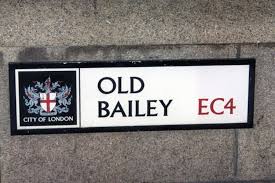
Between 13 and 16 December 2016 the Central Criminal Court at the Old Bailey was treated to a lesson in revolutionary politics, socialism and armed struggle, as revolutionary activist Alaettin Kalender went on trial, charged with possession of articles likely to be of use to terrorists.
The prosecution followed police raids on 6 April on the Anatolian People’s Cultural Centre in north London and the homes of two of the Centre’s activists. Items seized from Alaettin’s home included a copy of a 67-page magazine produced by the Turkish revolutionary organisation Devrimci Sol (Revolutionary Left) in 1997.
It was alleged that seven pages of the magazine contained instructions on how to make bombs. The first two days of the court case were taken up with the prosecution case, which involved linking these pages to other articles in issues of the same magazine about armed actions carried out by Dev Sol. These included the 1996 execution of three high-up employees of the Sabanci corporation in response to the state murder of 17 Kurdish and Turkish political prisoners, and the 1998 attack on Turan Ünal, a contra-guerilla who had been involved in the torture and murder of four Devrimci Sol fighters. The case of a wounded Devrimci Sol guerrilla who blew herself up killing a senior police officer was also brought up by the prosecution.
On the third day Alaettin gave evidence to the court. He told the jury that he was 50 years old and a socialist. He had been employed as a teacher in Turkey and in his earlier life was a practising Muslim and not politically active; however after moving to East Anatolia, he got to know people of different nationalities and beliefs (especially Kurdish people and Alevis) and his views slowly changed over the four to five years he lived there. This gradual change came to a head when a group of people, including 18-20 high school students whom he had taught, were massacred with chemical weapons: ‘I started to question my own thoughts and I felt close to the oppressed people. To get to know the oppressed, I started to research and learn. I found out, and I still believe, that socialism is the only system that favours the oppressed.’ When asked what he understands by socialism, Alaettin said that he would define it as ‘food, justice and freedom’.
Asked about armed struggle, he replied that it is not easy to resist fascism and that he respects all those who struggle against it, whether they are armed or unarmed. He went on to explain that, in his view, when we see revolutionaries martyr themselves for the struggle, we should question and try to understand why they felt so strongly that they gave their lives for their beliefs. In the search for answers to such questions, Alaettin explained that he considered it completely legitimate and lawful to read literature which helps us to understand the motivation of such fighters.
Alaettin had the benefit of a strong, supportive legal team who helped him to explain all this fully to the court. The jury members in turn were convinced and pronounced him ‘Not Guilty’.
After Alaettin’s acquittal, the police wanted to destroy the Revolutionary Left magazine which had been the focus of the case, but he and his comrades demanded it be returned to them, agreeing that the bomb-related section could be torn out first.
Throughout the four-day hearing, supporters of the Anatolian People’s Cultural Centre packed the public gallery, seeing the case as not simply an attack on one man, but as a judgment on all their right to freely read revolutionary socialist literature. Those who attended were both old and young, some already knowing all about the matters raised by the prosecution and responded to by Alaettin, while others learned about them for the first time. As a press release issued by Yuruyus magazine on 16 December stated: ‘This court case was like a four-day tutorial.’
The same press release also recounts a joke made by the barrister in the case as part of his submissions, which made the whole court smile: ‘Alaettin is being prosecuted for a 1997 publication containing pages about bomb construction. We’ve been looking at this material on bomb making here for four days. So this means that the court clerks, lawyers, 12 members of the jury and all the spectators now know how to build a bomb. So we can all be judged.’
The Revolutionary Communist Group congratulates Alaettin and his comrades on this victory for freedom of political expression. A luta continua!




